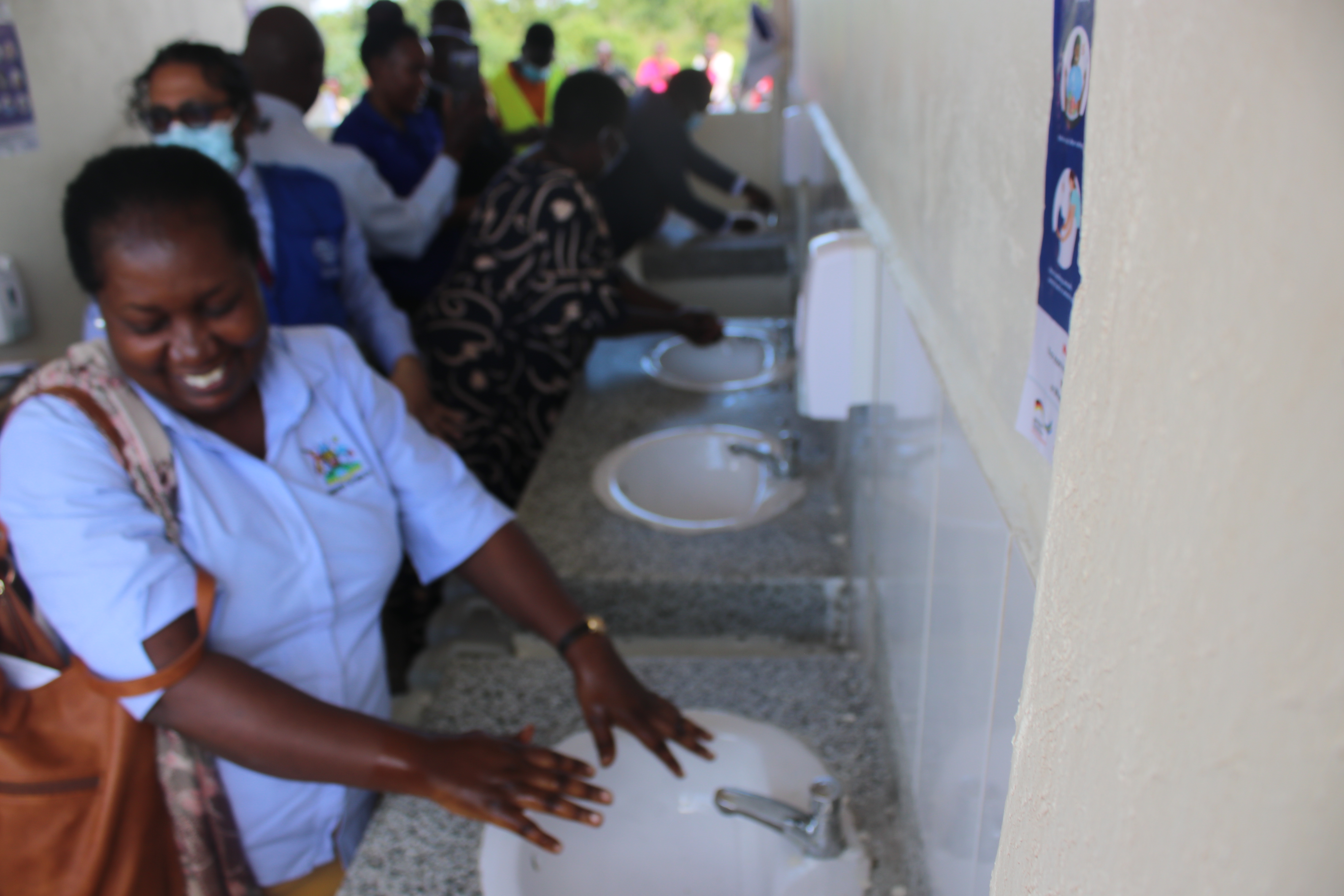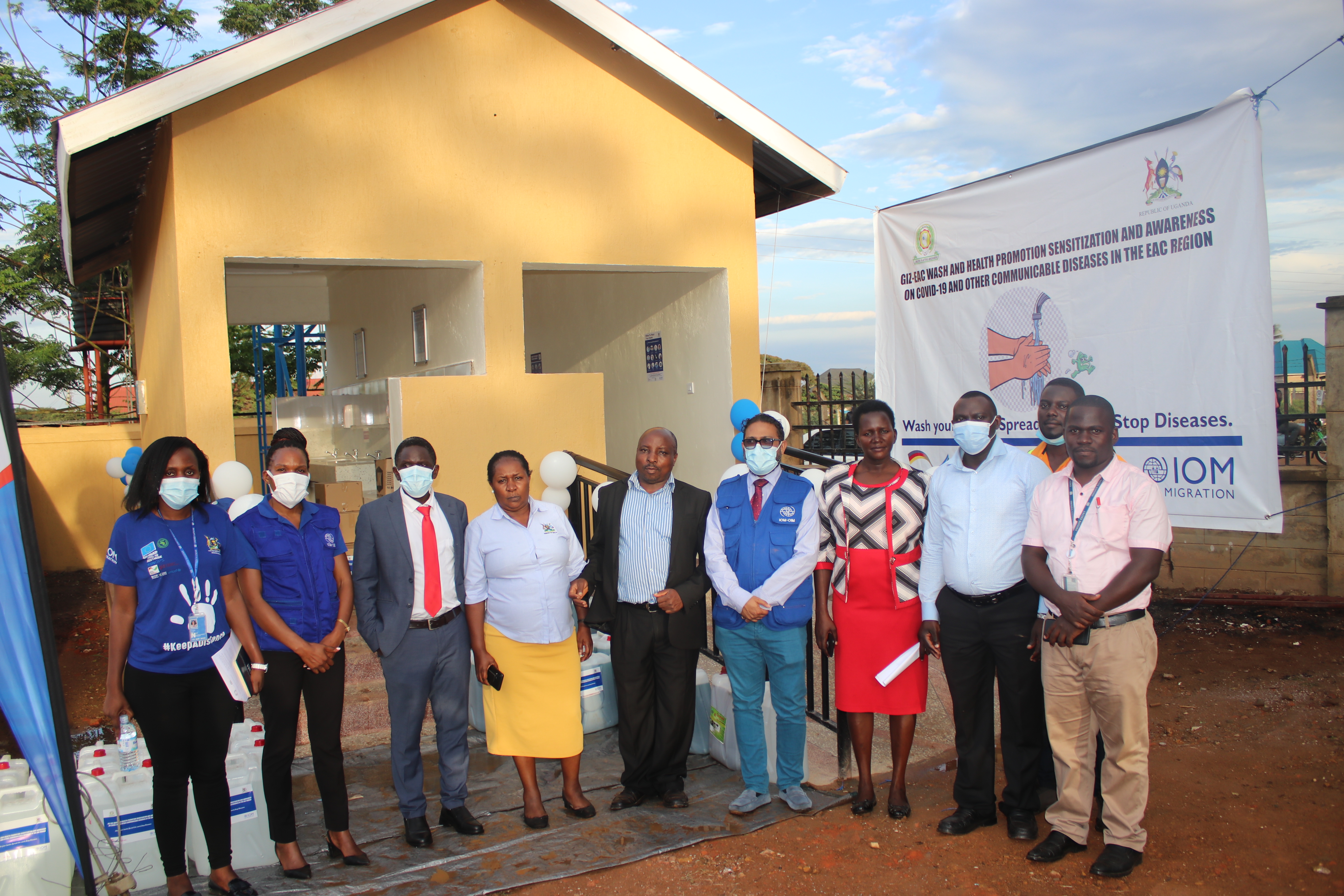-
Who We Are
WHO WE AREThe International Organization for Migration (IOM) is part of the United Nations System as the leading inter-governmental organization promoting since 1951 humane and orderly migration for the benefit of all, with 175 member states and a presence in over 100 countries. IOM has had a presence in Uganda since 1988.
About
About
IOM Global
IOM Global
-
Our Work
Our WorkAs the leading inter-governmental organization promoting since 1951 humane and orderly migration, IOM plays a key role to support the achievement of the 2030 Agenda through different areas of intervention that connect both humanitarian assistance and sustainable development. Across Uganda IOM supports the Government to address migration challenges and build the capacity of relevant stakeholders.
Cross-cutting (Global)
Cross-cutting (Global)
- Data and Resources
- Take Action
- 2030 Agenda
IOM builds Permanent Hand Washing Facilities for Border Communities in Uganda
By Richard M Kavuma and Innocent Vuga
Amuru - The International Organization for Migration (IOM) has handed over three permanent handwashing facilities and related supplies to Ugandan authorities, to bolster efforts to improve hygiene and prevent a range of diseases.
The facilities are located at Elegu (in Amuru district) on the border with South Sudan, and Kasensero landing site and Mutukula (Kyotera district), bordering the United Republic of Tanzania. Each facility has eight hand-wash basins including those meant for children and people with disabilities. They are expected to help control water-borne infections and zoonotic diseases, caused by germs that spread between animals and people.
The handwashing facilities were built through the ‘WASH and Health promotion sensitization and awareness of COVID 19 and other communicable Diseases in the EAC Region’ project. It aimed to increase health awareness and promote hygiene practices, as a measure against diseases like COVID-19 in Burundi, Kenya, Rwanda, South Sudan, Tanzania and Uganda. Thirty-two permanent handwashing facilities have been built in the six countries.
The project focused on health and hygiene promotion, construction and equipping of WASH facilities, and increased coordination and harmonization of approaches among the countries.
“The project also procured [Water, Sanitation and Hygiene] and [Infection Prevention and Control] supplies worth USD 24,000 to support Infection prevention and control,” said Dr Risatul AFM Islam, the head of IOM Uganda’s Migration Health Assessment programme.

The Ministry of Health focal person for points of entry, Harriet Mayinja, and other guests test the facility at Kasensero

A group photo at the facility at Mutukula, Southern Uganda
In Uganda, community health workers were trained and equipped to spread messages on COVID 19 and other infectious diseases, reaching some 141,000 people in Uganda.
“We all know that when you wash hands you prevent 70 percent of infections,” said Dr Moses Mwigo Kabangi, Uganda’s Commissioner for Environmental Health Services.
The COVID-19 pandemic has shed light on the need to focus on improving the region’s ability to respond to the special requirements of cross-border preparedness and response and address the needs of migrants and cross border communities.
The handwashing facilities, worth USD 57,000, were constructed under a project funded by Germany’s Gesellschaft für Internationale Zusammenarbeit (GIZ) through the East African Community (EAC) Secretariat.
Across the six countries, the project reached more than 4.7 million people with behavior change interventions, including health and hygiene risk awareness activities and capacity building of key community influencers.
